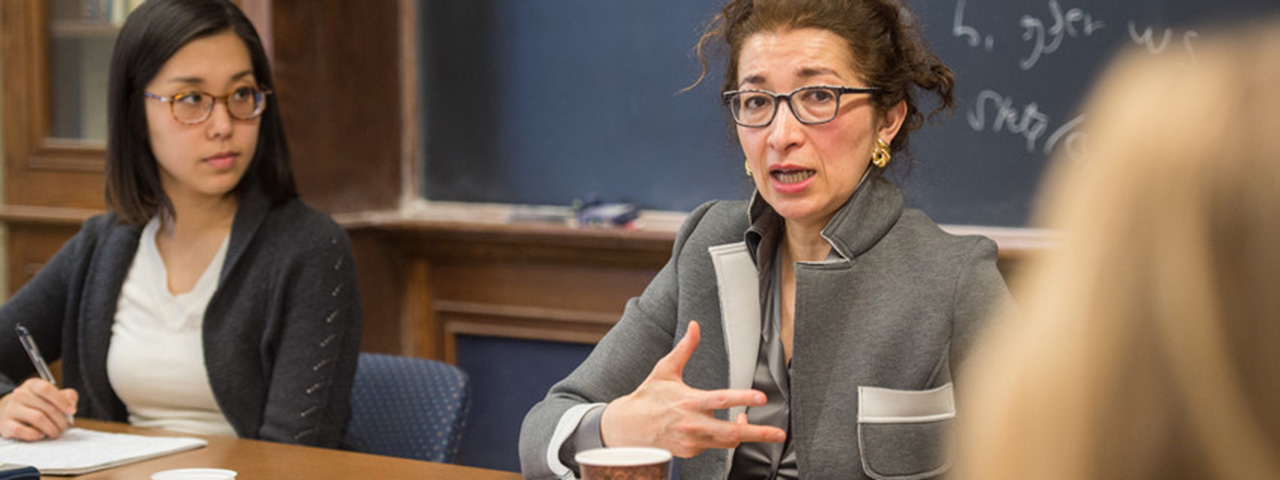Shape the Future of Politics and Governance
PhD in Political Science

of political science Ph.D. students are women
are international students
of domestic students are students of color
Degree Requirements
The Ph.D. degree requires a total of 72 credit hours, including:
- at least 42 credit hours of graded graduate coursework,
- an additional 30 hours of dissertation credits,
- declared major and minor field or two major fields of study and,
- a passing score on a qualifying examination in the selected areas.
Students working toward the Ph.D. will be eligible for the award of M.A. once they have completed the requirements for the M.A.
Fields of Study
Students pursuing the Ph.D. must declare either a major field and a minor field or two major fields. For the first major field, the available options are American politics, comparative politics, international relations and political theory. For students pursuing a second major field, the options are American politics, comparative politics, international relations, political theory, and public administration and policy. For a minor field, the available options are American politics, comparative politics, international relations, political theory, public policy, security studies, and law and courts.
Meet Our Ph.D. Candidates


Erika Arias
Social movements, political conflict and violence, public opinion, political behavior

Uğur Altundal
Contemporary political philosophy, democracy, citizenship, immigration and open border

Nathan Carrington
Political psychology, United States Supreme Court, freedom of expression and judicial legitimacy

Nneka Eke
African politics with a focus on oil multinational corporations and Indigenous rights in Nigeria, African diaspora communities, feminism in international relations

Joel Kersting
Political parties, representation, public opinion, LGBTQ politics, race and politics
Looking for Ph.D. dissertations?

Collaboration drives innovation
Doctoral student Claire Sigsworth ’17 M.A. (PSc) co-authored with Professor Thomas Keck, the Michael O. Sawyer Chair of Constitutional Law and Politics, the recently published paper “Diplomats in Robes: Judicial Career Paths and Free Speech Decision-Making at the European Court of Human Rights” in Law & Social Inquiry. Their findings show that former career is related to judicial voting patterns in free speech cases.
Claire Sigsworth '17 M.A. (PSc)
Ph.D. student, political science
Funding Opportunities
Merit-based financial aid awards are available to support study in the Ph.D. program in the form of fellowships and graduate assistantships. Financial support is renewed each year for five years of study, subject to maintaining satisfactory performance in the Ph.D. program. Admitted students typically receive stipends for their first three summers in the program as well.
Fellowships
University fellowship awardees receive a stipend and a full-tuition scholarship for 24 credits in their first and fourth years of study and receive graduate assistantship in their second, third and fifth years.
Graduate Assistantships
Ph.D. students have the option to obtain teaching and research experience through graduate assistantships, which are renewed each academic year. Assistantships include a stipend, a full graduate tuition scholarship and a subsidy toward health insurance coverage for the year.
Future Professoriate Program
The Future Professoriate Program (FPP) aims to foster a sense of community among graduate students while allowing them to hone skills related to teaching, research and professional identity development. The purpose of the FPP is to help graduate students develop professionally by means of workshops, annual in-house conferences and a mentored independent teaching experience. Students who complete these activities and produce a teaching portfolio can receive the University’s Certificate in University Teaching. These endeavors are seen as complements to the training in scholarship and teaching that are regular parts of graduate education.
